There are few franchises that balance tone as well as Like a Dragon. Every game in the series is a delicate balancing act between melodramatic cutscenes and playful minigames, a mixture that’s very easy to get wrong. Like a Dragon: Infinite Wealth, the eighth mainline game in the series, is the poster child of that balancing act. Everything about it, from its themes to its mechanics, is about balance.
Infinite Wealth is a direct sequel to Yakuza: Like a Dragon in every sense of the word. While previous Yakuza/Like a Dragon games have been fairly standalone outside of a few callbacks here and there, Infinite Wealth not only references past events in every single chapter but also expects the player to be familiar with both Ichiban and Kiryu’s adventures. This even applies to the substories, many of which feature familiar faces from Ichiban’s previous adventure in Yakuza: Like a Dragon.

You can still follow along perfectly fine if this is your first Like a Dragon game (and there’s a helpful recap for newcomers), but so much of the story’s impact will be lost on you if you aren’t a longtime fan. From major story beats like fists flying between old friends to small callbacks like the Kamurocho battle theme being a remix of the original Yakuza’s battle theme, there are so many emotional gut punches in Infinite Wealth that just won’t land if you aren’t a series veteran.
For example, longtime face of the franchise Kazuma Kiryu has had several sendoffs at this point — with Yakuza 6 supposedly being the end of Kiryu’s story even though he showed up to pass the torch to Ichiban in Yakuza 7 and then got yet another last hurrah in Like a Dragon Gaiden — but Infinite Wealth feels like the true end of an era in more ways than one. The Dragon of Dojima’s battle with cancer sends him down a road of remembrance paved with nostalgia and familiar faces.
Kiryu wrestles with the legacy he’s leaving behind throughout the main story of Infinite Wealth, but it’s the side content that really shines for his half of the game. The streets of Isezaki Ijincho and Kamurocho are dotted with Memoirs of a Dragon that range from minor flashbacks to full-on substories. Every building, every corner, and every dark alley holds special memories for Kiryu. It’s a testament to the staying power of the series, and fans will appreciate each and every one of Kiryu’s memories. Whether he’s fighting waves of goons or sitting down for a quiet chat with an old friend, Kiryu’s story is about remembering what it means to be a Dragon.
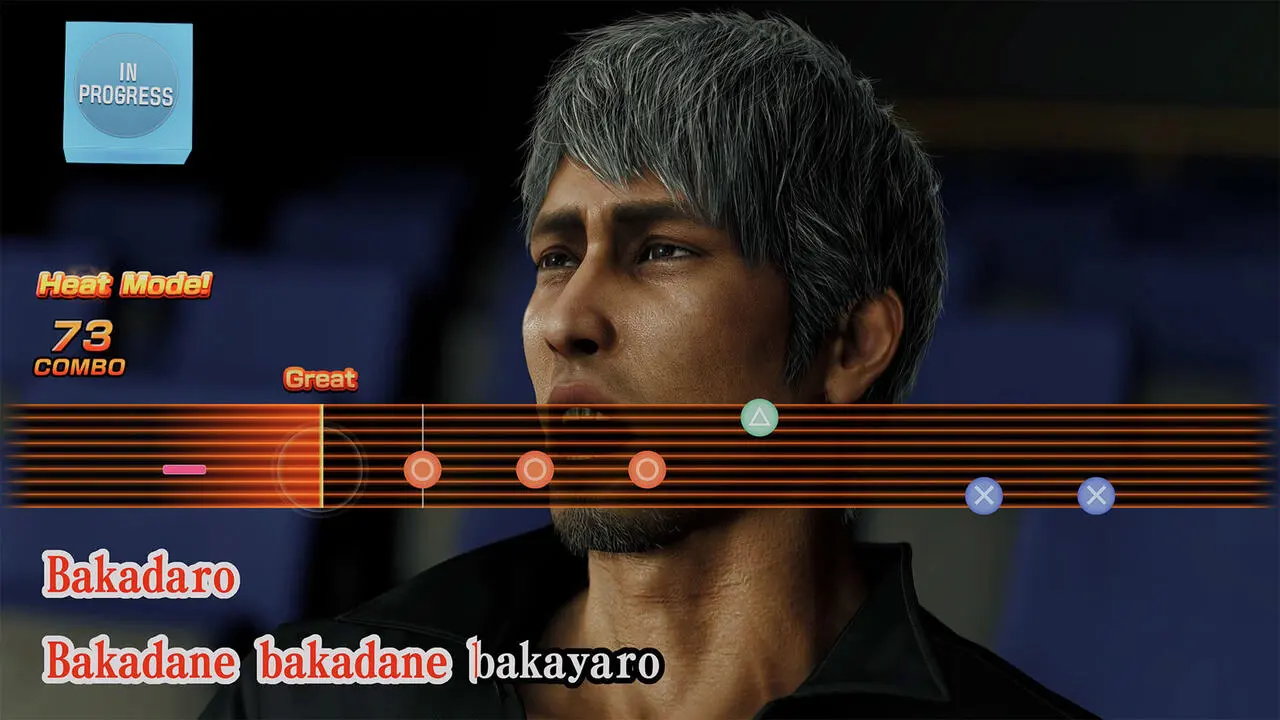
Learning the true meaning of being a Dragon is central to Ichiban’s story as well, as Infinite Wealth marks the true passing of the torch between the two characters. The game’s dual protagonist system is much more than a gimmick. Kiryu’s side of the story is about the old generation righting their wrongs and realizing that there is a better path for everyone, while Ichiban’s side of the story is about the new generation looking to the future and balancing tradition and progress. It’s an all too familiar tale in this age of gaming, but Infinite Wealth delivers its message in a way that only a Like a Dragon game could, complete with melodramatic shirtless duels and overly passionate karaoke sessions.
The series also looks to the future with its first-ever location outside of Japan. The story sends Ichiban and co. to Hawaii, and this tropical paradise is much more than just a backdrop. Hawaiian culture and history are intrinsically linked to the story of Infinite Wealth. Amid the backstreet brawls and crime drama, the game takes the time to explore the intricacies of Hawaii, the exploitation of its culture and native population, and the realities of a tourism-dominated economy. Of course, this is Like a Dragon so most of these problems end up fixed with a fistfight, but the way Ichiban and the party navigate the cultural landscape of Hawaii goes a long way to develop their characters.
The streets of Hawaii are also packed with a ton of activities to enjoy outside of the main story. The main side games in Infinite Wealth are Sujimon and Dondoko Island. Sujimon is a team-based battler that draws heavy inspiration from Pokemon, letting you obtain the enemies that you fight in normal battles through a gacha system or raids scattered throughout the open world. Dondoko Island is an Animal Crossing-inspired island builder where Ichiban can craft buildings and decorations to help restore a struggling resort that’s under siege by a polluting gang called the Washbucklers.
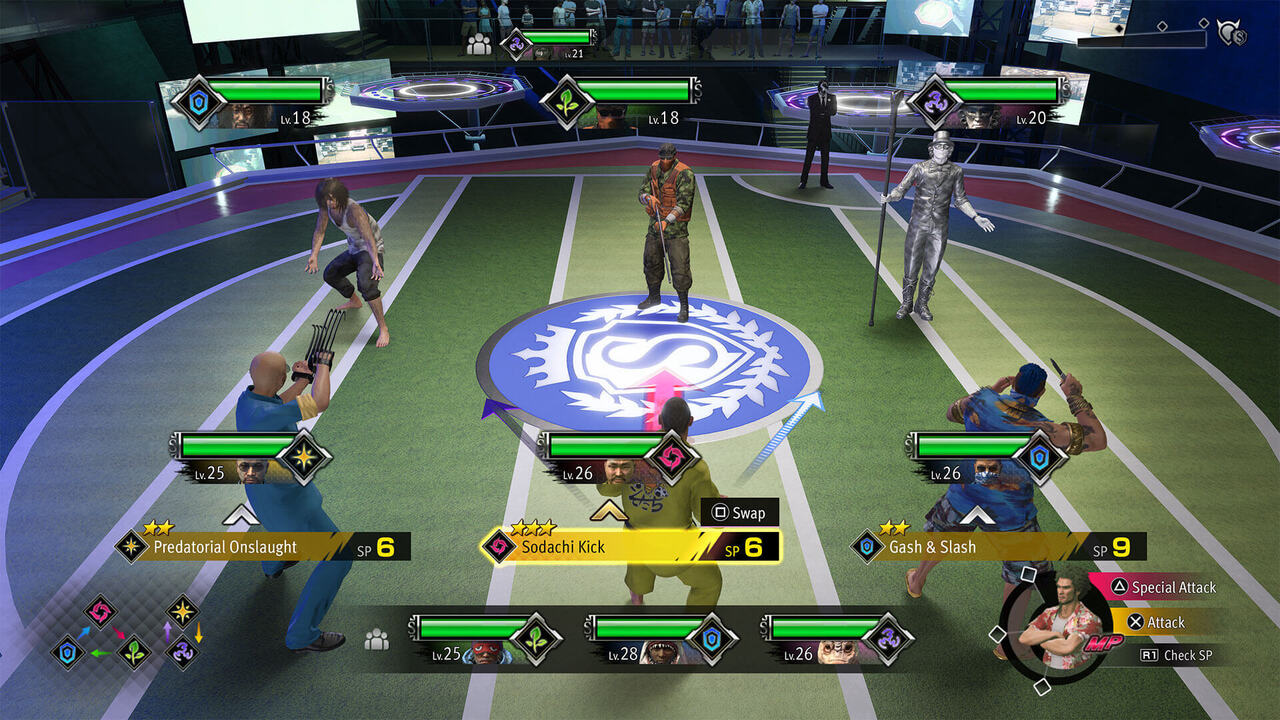
You can also take part in the usual pastimes like karaoke in addition to new minigames like Crazy Delivery and Miss Match, but Sujimon and Dondoko Island are the main attractions. They’re so expansive that calling them “side content” feels disrespectful. The real highlight of these activities, however, is how well they’re integrated into the main game. For example, Sujimon raids are all over Hawaii and it’s hard to walk a few blocks without running into a Sujimon gacha machine. On top of that, substory characters and friends that you make across Hawaii can be invited to Dondoko Island as guests.

As a matter of fact, Infinite Wealth’s greatest strength is how well all of its systems feed back into each other. Sujimon that you capture can be used in normal battles via Ichiban’s Sujimancer Job. Conversations and minigames with your party members increase your bond levels, unlocking new tag team attacks and combo abilities for combat. You might find Dondoko Island recipes when shopping for healing items. Even something as simple as greeting NPCs throughout the city will increase Ichiban’s personality levels, granting him new abilities in combat and unlocking new Jobs.
This isn’t anything new for Like a Dragon games or RPGs in general, but the real victory is how little friction there is between all of the systems. Raising bond levels is effortless since conversations happen naturally while you’re walking around the city and you can even score some bond points from activities like karaoke. Plus, the game incentivizes building bonds with an addictive friendship bingo system. Sujimon stations give you free items just by walking near them, enticing you to make a few pulls and build out your team. Leveling Jobs is easy since all characters get experience, even ones not in your active party.

Even substories and side missions have been redesigned to focus on shorter encounters with multi-stage stories. They’ll never take up more than a few minutes of your time and they’re so great that you’ll want to head straight to the next part as soon as you can. You’ll very rarely find yourself thinking “I don’t have time for this” when playing Infinite Wealth, and that’s an immense achievement.
It helps that the core mechanics are a blast, too. While Yakuza: Like a Dragon stuck the landing when the series transitioned from action to turn-based combat, Infinite Wealth refines that system into one of the best turn-based battle systems in any RPG. It places a huge emphasis on positioning and environmental attacks. Party members can now freely move around the battlefield during their turn, which adds several layers of strategy to fights. Enemies take extra damage when attacked from behind, some attacks knock enemies back which damages any other enemies that they hit, allies can perform combo attacks if they stand near each other, items can be picked up and used as weapons, and more.
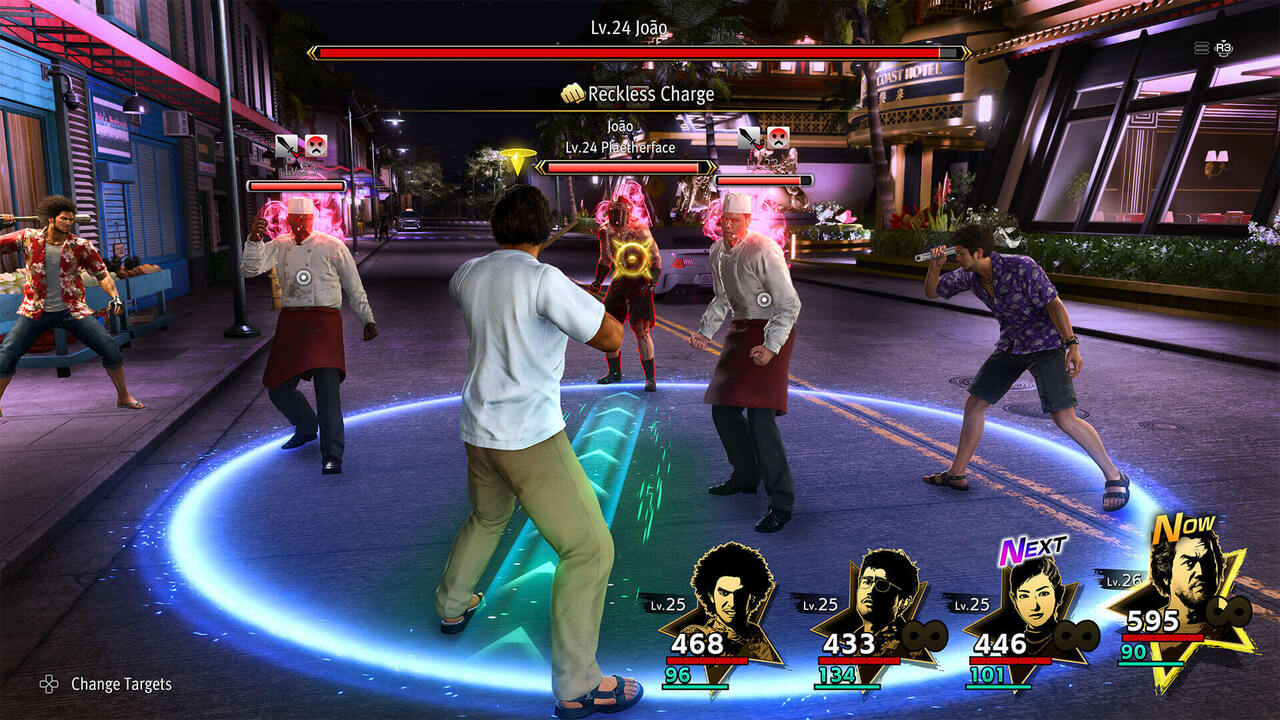
It’s just an exceptional battle system in all regards, especially with the customization of the Job system, which has been expanded with a new Skill Inheritance system. With this mechanic, you can carry over skills from any Job for every character. If you want the healing abilities of an Idol but the damage output of a Kunoichi, that’s possible. You can inherit even more skills as you level up your party bonds, and you can create some truly unique builds because of this.
Implementing so many new systems and placing such a huge focus on its side content was a risk, but Infinite Wealth so confidently asserts itself that it’s hard not to fall in love with everything that it has to offer. Like its protagonist, it’s a game that brazenly wears its heart on its sleeve. Even when you’re on the ultimate Hawaiian vacation, there’s still time to reunite feuding friends or help a crawfish find love.
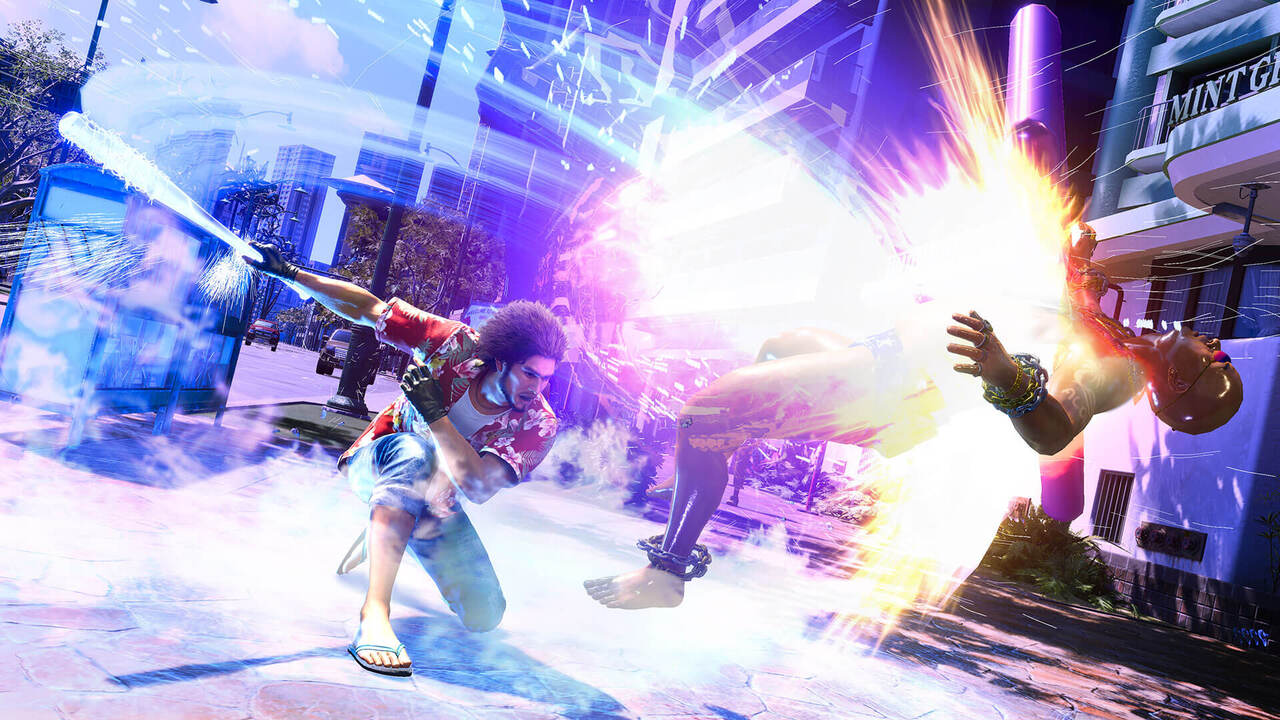
Verdict
Sequels tend to iterate upon their predecessors, but Ryu Ga Gotoku Studio crammed so many improvements into Infinite Wealth that it easily enters the sequel hall of fame. For the studio’s second crack at the turn-based RPG format, Infinite Wealth knocks it out of the park. With a refined battle system, a stellar supporting cast, and the best side content the series has ever seen, Like a Dragon: Infinite Wealth is one of the best RPGs of the modern era.



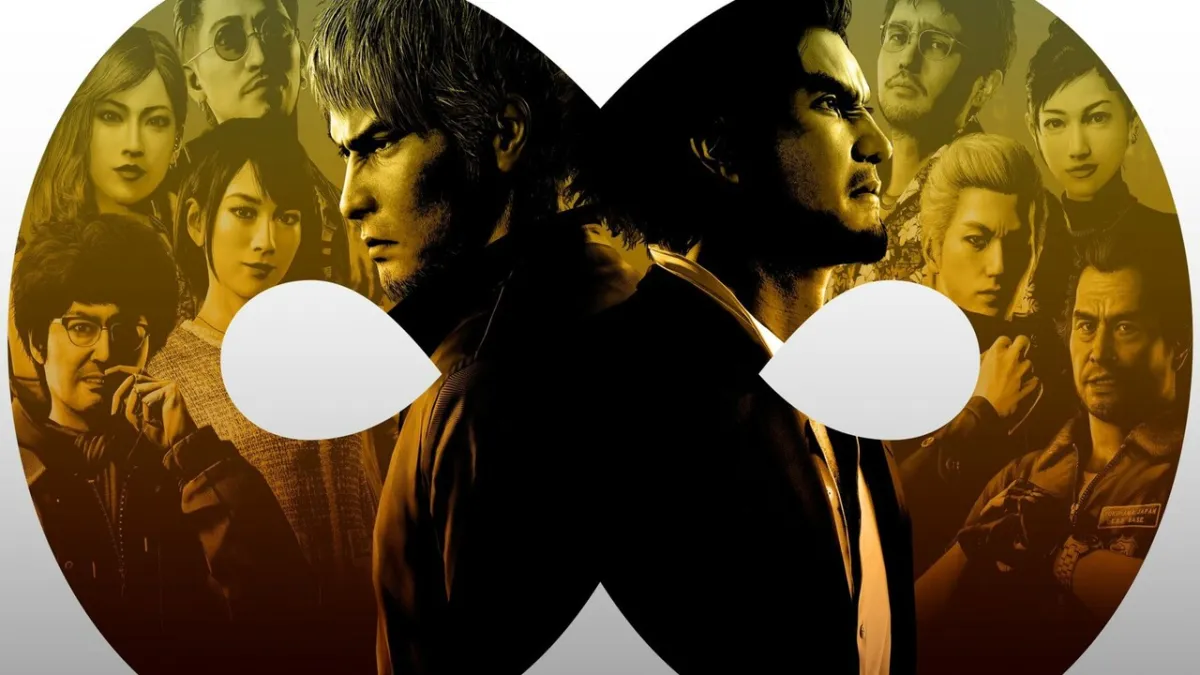
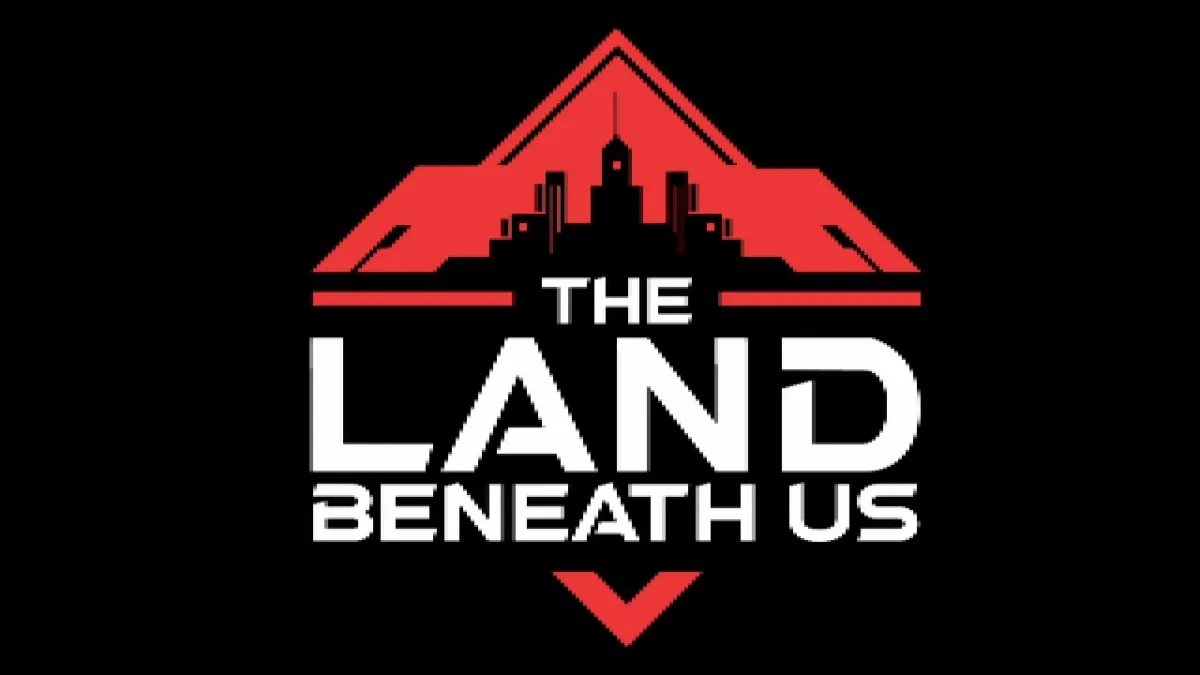
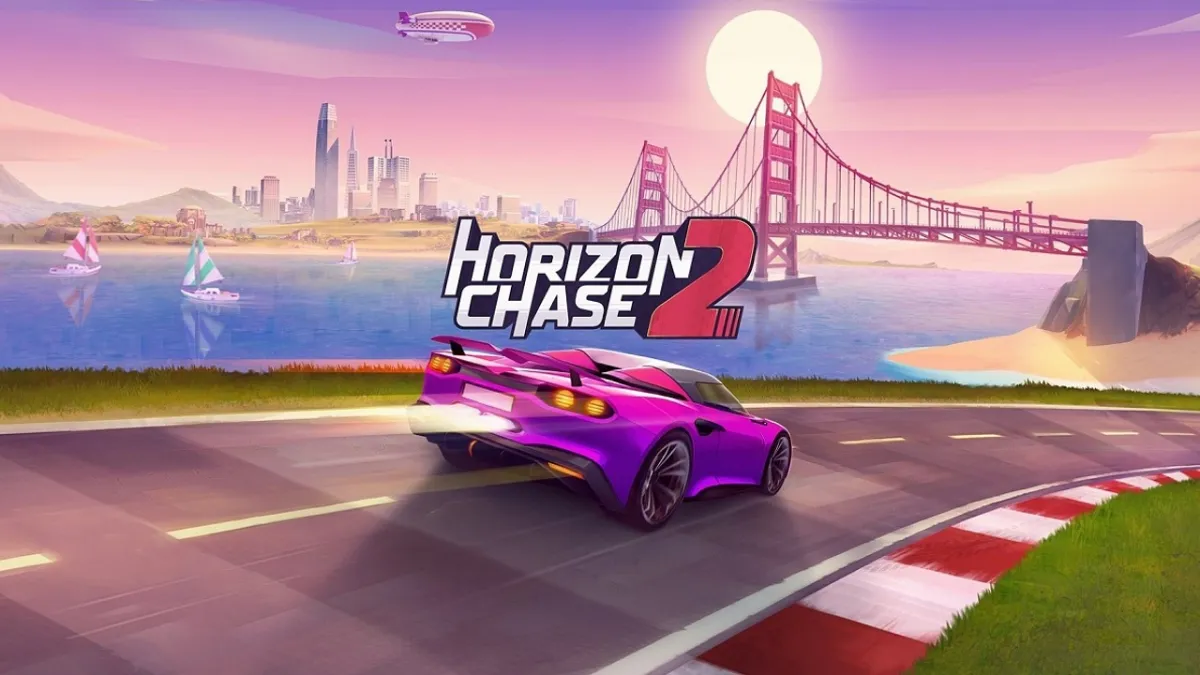
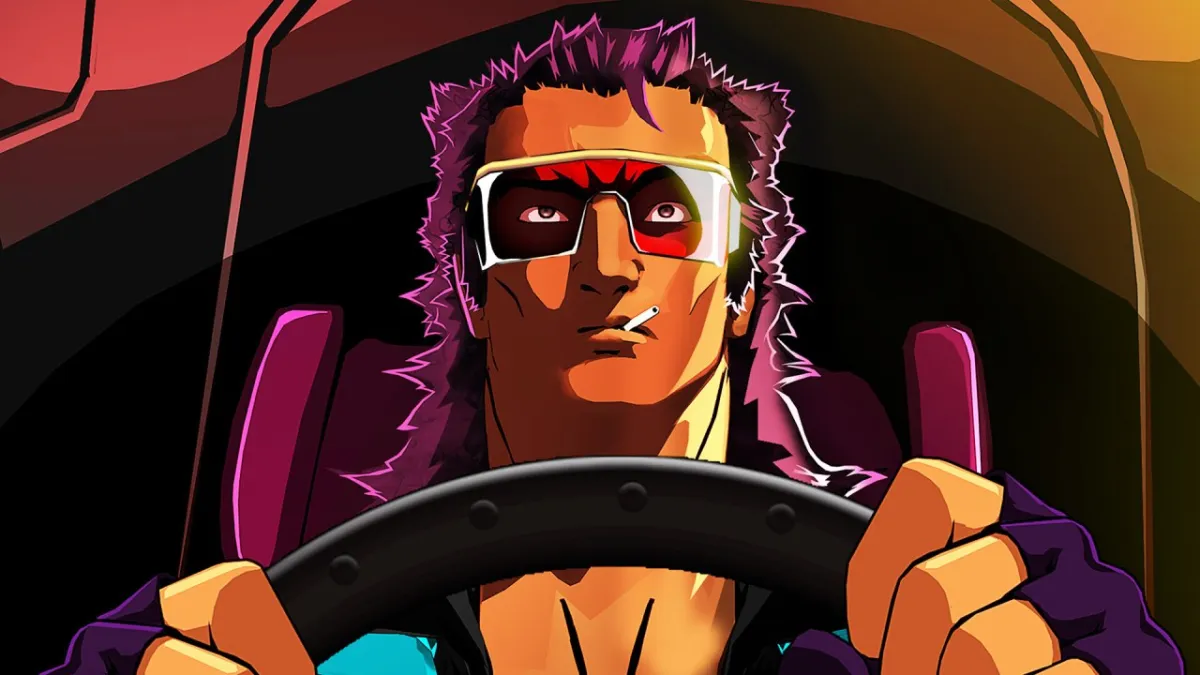
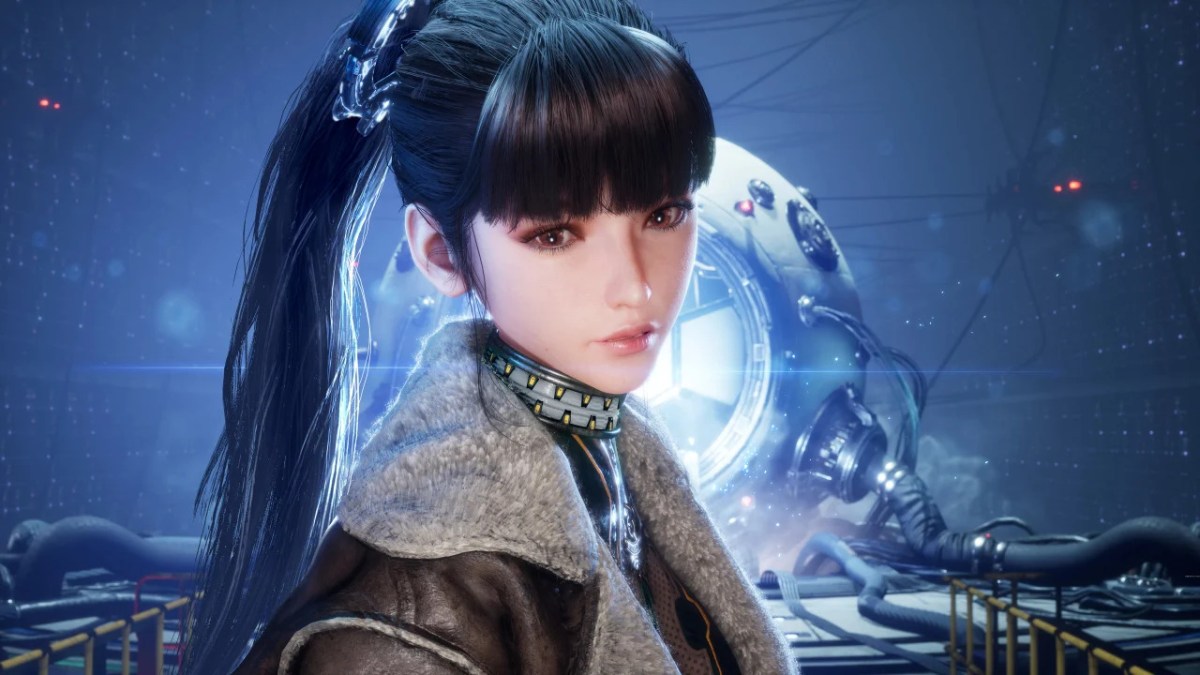
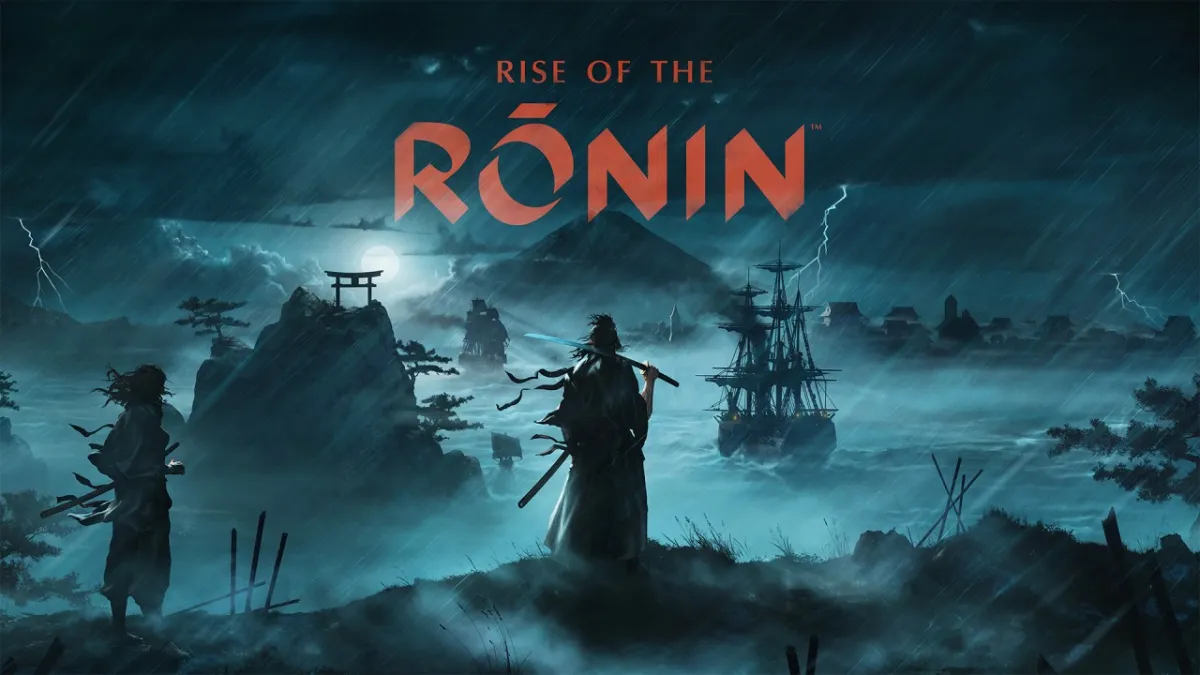

Published: Jan 23, 2024 09:00 am